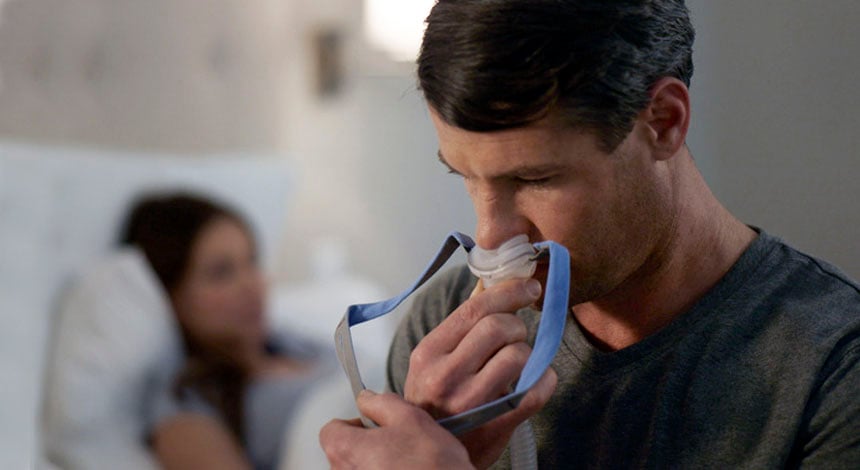Show me the way to...
txt
Show me the way to...

How can you achieve mask comfort, and what can you do if you're experiencing mask discomfort? Find the answers to ResMed's frequently asked questions about mask comfort.
A. If you're trying to achieve a more comfortable fit with your mask, try these three tips:
A. It may. If you have facial hair, you may find that some masks work better for you than others. Contact your local ResMed accredited outlet to find out whether a different style of mask may provide improved comfort or a better fit.
A. Everyone is different. Full face masks cover more of your face, while nasal masks and nasal pillows masks cover less. It really does come down to personal preference and which type of mask best suits your needs.
A. There are many possible reasons for reactions to your mask, some of which are not related to allergies. Please consult your doctor or local ResMed accredited outlet if you experience skin irritation or sores when wearing your mask.
A. With a deviated septum, you're likely to be breathing through your mouth because your nasal passage is blocked. A full face mask will allow you the option of breathing through your nose or mouth.
Do you have a question about CPAP mask comfort that isn't on this page? Contact our customer support on 1300 305 705 (Australia) or 0800 737 633 (New Zealand) or click here to submit an online inquiry.
©2000-2019 ResMed. All rights reserved.